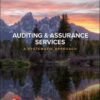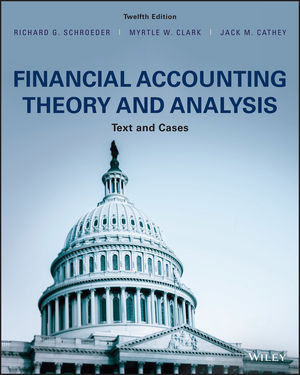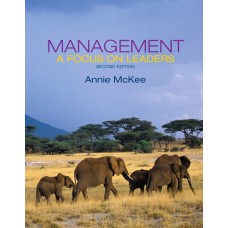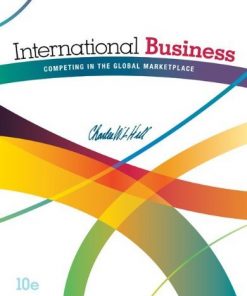Solution Manual for Financial Accounting Theory and Analysis: Text and Cases, 12th Edition, Richard G. Schroeder, Myrtle W. Clark Jack M. Cathey
$35.00
Solution Manual for Financial Accounting Theory and Analysis: Text and Cases, 12th Edition, Richard G. Schroeder, Myrtle W. Clark, Jack M. Cathey,,,
You will receive this product immediate after placing the order
Solution Manual for Financial Accounting Theory and Analysis: Text and Cases, 12th Edition, Richard G. Schroeder, Myrtle W. Clark, Jack M. Cathey,,,
You are buying Solution Manual. A Solution Manual is step by step solutions of end of chapter questions in the . Solution manual offers the complete detailed answers to every question in at the end of chapter. Please download sample for your confidential. All orders are safe, secure and confidential.
Preface v
1 The Development of Accounting Theory 1
The Early History of Accounting 2
Accounting in the United States since 1930 4
The Role of Ethics in Accounting 18
International Accounting Standards 22
Cases 23
FASB ASC Research 25
Room for Debate 26
2 The Pursuit of the Conceptual Framework 27
The Early Theorists 27
Early Authoritative and Semi-Authoritative Organizational Attempts to
Develop the Conceptual Framework of Accounting 29
The FASB’s Conceptual Framework Project 38
Principles-Based versus Rules-Based Accounting Standards 51
International Convergence 55
Cases 65
FASB ASC Research 67
Room for Debate 67
3 International Accounting 68
International Business Accounting Issues 69
The Development of Accounting Systems 69
Preparation of Financial Statements for Foreign Users 71
The International Accounting Standards Committee 71
The IFRS Foundation Constitution 75
The Uses of International Accounting Standards 79
The IASC and the IOSCO 80
The IASB Annual Improvements Project 81
The Use of IASC Standards 81
IASB–FASB Convergence 82
The Effects of International versus U.S. GAAP Accounting Standards 83
Standards Overload 86
Framework for the Preparation and Presentation of Financial Statements 87
IAS No. 1 and IFRS No. 1 95
Cases 96
FASB ASC Research 98
Room for Debate 98
4 Research Methodology and Theories on the Uses of Accounting Information 99
Research Methodology 99
The Outcomes of Providing Accounting Information 102
The Relationship among Research, Education, and Practice 120
Cases 121
FASB ASC Research 123
Room for Debate 123
5 Income Concepts, Revenue Recognition and Matching 125
The Nature of Income 126
Economic versus Accounting Income 130
Revenue Recognition 132
Matching 149
Income Recognition Constraints 151
Earnings Quality, Earnings Management, and Fraudulent Financial Reporting 153
International Accounting Standards 159
Cases 159
FASB ASC Research 162
Room for Debate 162
6 Financial Statement I: The Income Statement 164
The Economic Consequences of Financial Reporting 164
Income Statement Elements 164
Statement Format 166
Proposed Format of the Statement of Comprehensive Income 188
The Value of Corporate Earnings 190
International Accounting Standards 195
Cases 199
FASB ASC Research 202
Room for Debate 202
7 Financial Statements II: The Balance Sheet and the Statement of Cash Flows 203
The Balance Sheet 203
Fair Value Measurements 214
Proposed Format of the Statement of Financial Position 220
Evaluating a Company’s Financial Position 222
The Statement of Cash Flows 225
Proposed Format of the Statement of Cash Flows 233
Financial Analysis of Cash-Flow Information 236
International Accounting Standards 237
Cases 243
FASB ASC Research 246
Room for Debate 247
8 Working Capital 248
Development of the Working Capital Concept 248
Current Usage 250
Components of Working Capital 250
Working Capital Management 261
International Accounting Standards 268
Cases 269
FASB ASC Research 272
Room for Debate 273
9 Long-Term Assets I: Property, Plant, and Equipment 274
Property, Plant, and Equipment 274
Financial Analysis of Property, Plant, and Equipment 279
Cost Allocation 279
Capital and Revenue Expenditures 282
Recognition and Measurement Issues 283
Impairment of Value 283
Accounting for Asset Retirement Obligations 286
International Accounting Standards 288
Cases 294
FASB ASC Research 298
Room for Debate 299
10 Long-Term Assets II: Investments and Intangibles 300
Investments in Equity Securities 300
Investments in Debt Securities 309
Impairment of Investments in Unsecuritized Debt 312
Transfers of Financial Assets 313
Intangibles 314
Financial Analysis of Investments and Intangibles 322
International Accounting Standards 323
Cases 332
FASB ASC Research 335
Room for Debate 336
11 Long-Term Liabilities 337
The Definition of Liabilities 337
Recognition and Measurement of Liabilities 338
Debt versus Equity 339
Classification of Long-Term Debt 342
Other Liability Measurement Issues 354
Troubled Debt Restructurings 359
Financial Analysis of Long-Term Debt 362
International Accounting Standards 364
Cases 370
FASB ASC Research 374
Room for Debate 374
12 Accounting for Income Taxes 376
Historical Perspective 376
The Income Tax Allocation Issue 377
Financial Analysis of Income Taxes 397
International Accounting Standards 399
Cases 402
FASB ASC Research 405
Room for Debate 405
13 Leases 407
Accounting for Leases 408
Financial Analysis of Leases 419
Current Developments 421
Cases 434
FASB ASC Research 437
Room for Debate 438
14 Pensions and Other Postretirement Benefits 439
Historical Perspective 441
Accounting for the Pension Fund 450
The Employee Retirement Income Security Act 451
Other Postretirement
Benefits 452
SFAS No. 132 454
SFAS No. 158 454
Current Developments 456
Financial Analysis of Pension and Other Postretirement Benefits 457
International Accounting Standards 458
Cases 460
FASB ASC Research 462
Room for Debate 462
15 Equity 463
Theories of Equity 463
Definition of Equity 468
Reporting Equity 471
Financial Analysis of Stockholders’ Equity 483
International Accounting Standards 484
Cases 486
FASB ASC Research 490
Room for Debate 490
16 Accounting for Multiple Entities 491
Business Combinations 491
Accounting for Business Combinations 492
Business Combinations II 497
Theories of Consolidation 501
Noncontrolling
Interest 502
Drawbacks of Consolidation 505
Special-Purpose Entities 506
Variable Interest Entities 506
Segment Reporting 508
Foreign Currency Translation 512
International Accounting Standards 519
Cases 530
FASB ASC Research 533
Room for Debate 534
17 Financial Reporting Disclosure Requirements and Ethical Responsibilities 535
Recognition and Measurement Criteria 535
Areas Directly Affected by Existing FASB Standards: Supplementary Information 540
Other Means of Financial Reporting 548
Other Useful Information for Investment, Credit, and Similar Decisions 551
Securities and Exchange Commission 553
Ethical Responsibilities 560
International Accounting Standards 569
Cases 571
FASB ASC Research 575
Room for Debate 576
Index 577











Reviews
There are no reviews yet.